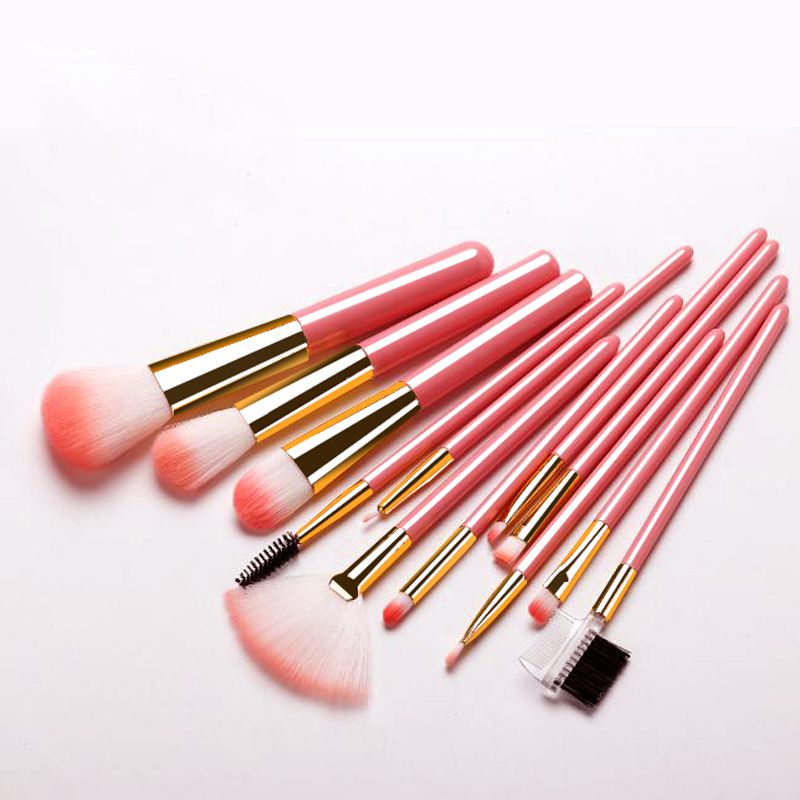Industry news
Turkish Brush Exporters Target Russia with Frost-Resistant Synthetic Bristle Solutions
- 752 Views
- 2025-09-02 01:31:56
Turkish Brush Exporters Target Russia with Frost-Resistant Synthetic Bristle Solutions
As Russia’s cosmetics market continues to expand, driven by growing consumer demand for high-quality beauty tools, a new challenge has emerged: the impact of extreme cold on cosmetic brush performance. With winter temperatures often plummeting below -20°C in many Russian regions, traditional brush bristles—whether natural or standard synthetic—tend to harden, lose elasticity, or even crack, compromising application precision and user experience. Sensing this unmet need, Turkish brush exporters are stepping up, positioning frost-resistant synthetic bristle solutions as a strategic entry point into Russia’s thriving cosmetic brush market.
Turkey, a global leader in brush manufacturing with a robust export network, has long eyed Russia as a high-potential market. In recent years, bilateral trade in beauty tools has grown steadily, with Turkish exports of cosmetic brushes to Russia rising by 18% annually, according to industry reports. This momentum is now being supercharged by targeted innovation: developing synthetic bristles engineered to withstand frigid conditions. Unlike natural bristles (such as goat or squirrel hair), which are prone to brittleness in cold and require intensive care, synthetic alternatives offer inherent advantages—durability, consistency, and adaptability to extreme environments. Turkish manufacturers are capitalizing on this by refining synthetic materials to address Russia’s unique climate challenges.

At the core of these frost-resistant solutions is advanced material science. Turkish R&D teams have focused on modifying polyamide (PA) fibers, the backbone of most synthetic bristles, with additives that enhance low-temperature flexibility. By blending PA6 and PA612 polymers with elastomeric compounds, they’ve created bristles that retain up to 90% of their elasticity even at -30°C, compared to 60% for standard synthetic bristles in lab tests. Further, precision spinning techniques control fiber diameter (typically 0.05-0.1mm) and surface texture, ensuring the bristles remain soft against skin while resisting matting or deformation when exposed to rapid temperature shifts—common in Russian winters, where users transition from freezing outdoors to heated interiors.
This technical edge aligns with Russia’s shifting consumer preferences. Post-pandemic, Russian buyers are prioritizing durability and functionality in beauty tools, with 62% of surveyed cosmetics retailers citing “climate resilience” as a key purchasing factor, per a 2024 industry survey. Turkish exporters are leveraging this by offering customizable solutions: from dense, frost-resistant foundation brushes for full coverage in cold dry air to soft, flexible eyeshadow brushes that maintain shape in subzero conditions. Some manufacturers are even integrating antimicrobial coatings into the bristles, addressing another Russian concern—hygiene in humid, cold environments where bacteria can thrive.
Beyond product innovation, Turkey’s logistical proximity to Russia (shipping times as short as 5-7 days via Black Sea routes) and competitive pricing (thanks to vertically integrated production chains) give it an edge over Asian competitors. “Russia isn’t just a market for us—it’s a partner,” notes a spokesperson for a leading Turkish brush manufacturer. “We’re not just exporting brushes; we’re co-developing solutions with Russian brands to meet their specific needs.”
Looking ahead, the frost-resistant synthetic bristle segment is poised for growth. With Russia’s cosmetic market projected to reach $15.8 billion by 2026, and 45% of that spent on tools and accessories, Turkish exporters are well-positioned to capture a larger share. As one industry analyst puts it: “In beauty, performance in real-world conditions wins loyalty. Turkey’s focus on cold-climate solutions isn’t just a trend—it’s a blueprint for market leadership.”











